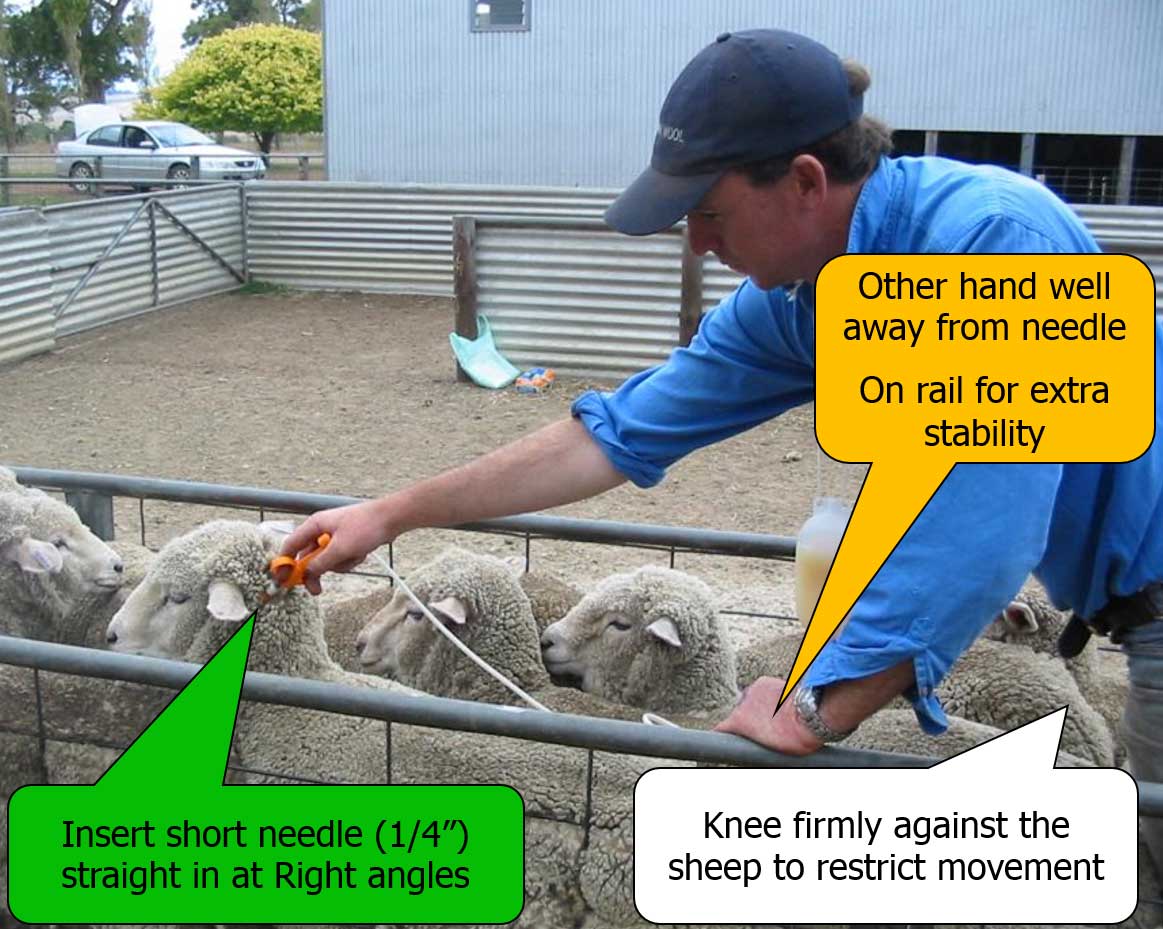
The National Centre for Farmer Health has warned agricultural workers and regional doctors to be vigilant about needle stick injuries this lamb-marking season.
Centre Director Professor Sue Brumby said needle stick injuries were a common danger during lamb-marking time when farmers, agricultural workers and contractors were administering large numbers of vaccinations to livestock.
During recent workshops undertaken by the National Centre for Farmer Health with livestock farmers across Australia, more than 80 per cent indicated that they had incurred a needle stick injury at some time.
“There are a variety of injected products used in production animals, including vitamins, vaccines, antibiotics and hormones, which can put agricultural workers at risk of needle stick injury. Inadvertently injecting these products can cause significant harm including the loss of fingers, miscarriage and permanent loss of function, so we take this issue seriously,” Professor Brumby said.
“We find that autumn and spring can be the key periods for injury with lambs coming in for marking. So with a good season across some of the southern parts of Australia, now is a timely reminder.”
Professor Brumby said while accidental, the injuries typically had a few things in common: the use of vaccines with mineral oil adjuvants, unpredictability of animals and poor animal restraint, as well as dangerous vaccination technique.
“The resulting injury can then be worsened by inappropriate medical treatment, difficulty finding first aid information on vaccines, and delayed treatment,” she said.
Professor Brumby said effective treatment could also be hindered because little might be known about the adjuvant, the substance added to a vaccine to boost the immune response, and this could be an irritant.
“For example the Johne’s disease vaccine for sheep and vibriosis vaccine for cattle both use mineral oil adjuvants, which are an irritant,” she said.
“If anyone is reporting to a medical professional with a needle stick injury they should bring along the material packaging and material safety data sheet.
“Healthcare professionals should consult the label and manufacturer for appropriate management as the manufacturer holds detailed information about the active ingredients and adjuvants in each product.”
Professor Brumby said education was key to reducing preventable harms like needle stick injuries.
“It’s important to have a good understanding of appropriate vaccination technique, such as keeping the non-vaccinating hand well away from needle, not tenting the skin, maintaining stability, adjusting the depth of the needle, not removing safety shrouds form the vaccinator gun and having a tight race or enclosure with minimal stock movement. This will all reduce injury risk,” she said.
“It’s also important for health workers in agricultural regions to understand these risks, have access to appropriate information to treat any subsequent injuries, and to adhere to best practice in treatment.
“Sometimes farmers can be adamant that no vaccine substance has been transferred to them. However we’ve seen several cases where farmers felt that the needle barely penetrated the skin, but the damage had extended deep into muscle.”
Professor Brumby said delayed or incorrect treatment could lead to complications including ongoing pain, inflammation, and loss of function, that then have a significant economic impact, especially for sole operators.
Health professionals will learn about best practice in treating agricultural needle stick injuries, as well as a range of other important regional and agricultural health issues, through the National Centre for Farmer Health’s 2020 Agricultural Health and Medicine post-graduate course.
The Centre is providing a limited number of scholarships for the 2020 course, valued at $1650, with applications now open for a start date in February. For more information visit www.farmerhealth.org.au.
The National Centre for Farmer Health is a partnership between Western District Health Service and Deakin University, based in the agricultural area of Hamilton, Victoria.
Media contact:
Elise Snashall-Woodhams
Senior Media Coordinator, Deakin University
P: 03 924 68593 M: 0436 409 659
E: e.snashallwoodhams@deakin.edu.au
T: @DeakinMedia